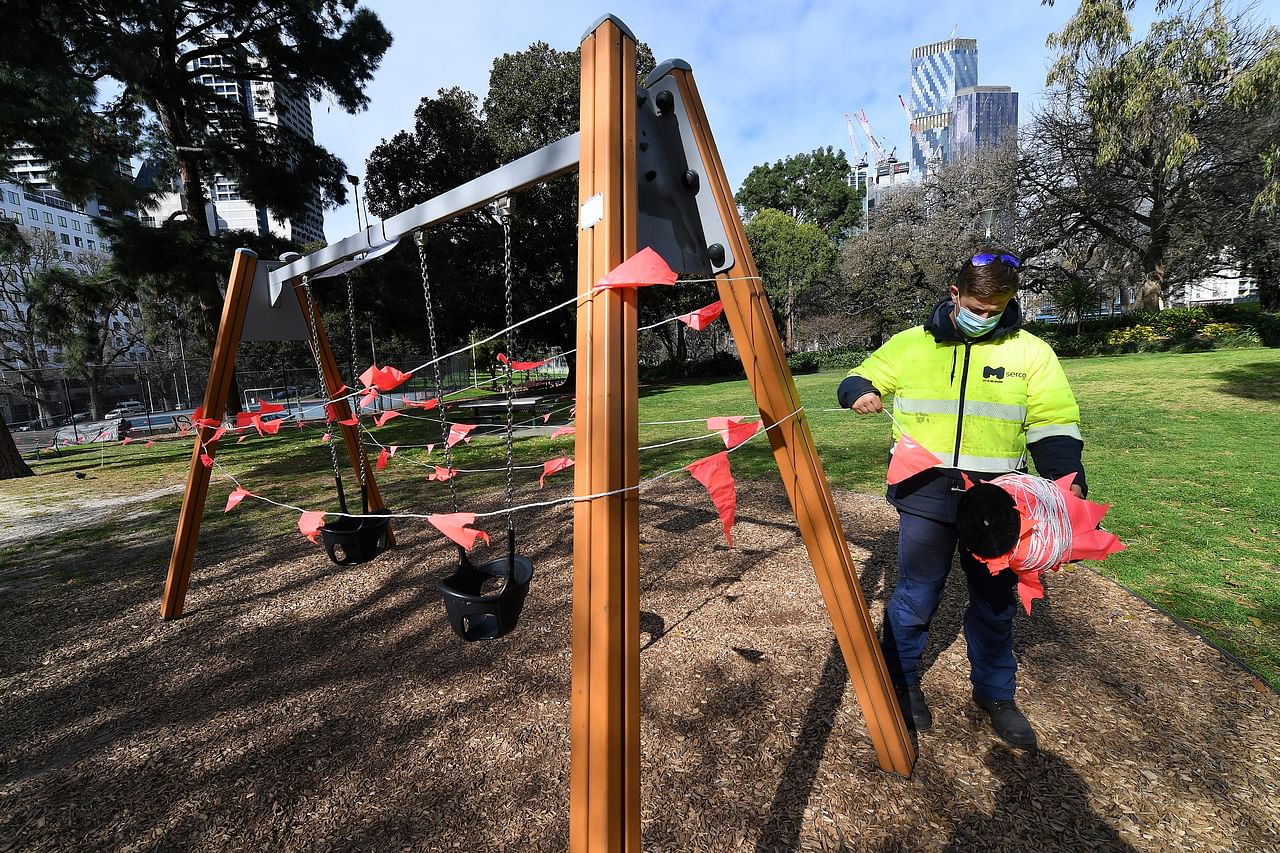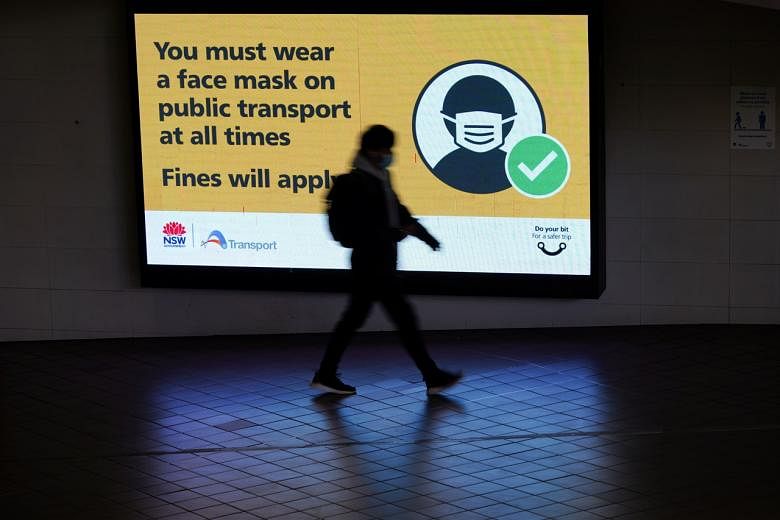SYDNEY - Australia is a nation divided, as a worsening Covid-19 outbreak opens fierce rifts among the states that are jeopardising plans to ease restrictions and to reopen internal and international borders.
The disunity has been deepening as the most populous state, New South Wales (NSW), struggles against an out-of-control outbreak, which reached a state record of 480 daily infections on Monday (Aug 16).
As Sydney's case numbers have risen despite a lockdown that began in June, NSW Premier Gladys Berejiklian has decided on a radical new course.
While the rest of the nation tries to eliminate the virus, Ms Berejiklian, a Coalition leader, has acknowledged that this is now impossible.
Instead, she plans to start easing restrictions as soon as next month, potentially after 50 per cent of NSW residents are fully vaccinated.
But Ms Berejiklian's approach has infuriated other states that largely have no or few infections, which fear that cases from NSW will continue to leak across state borders.
Other states and territories have closed their borders to NSW or imposed strict rules, such as allowing in only essential workers who have been vaccinated.
Some leaders have attacked NSW for not introducing more stringent lockdown measures.
Victoria, for instance, is under a statewide lockdown that includes a curfew, closure of playgrounds and mandatory masks when outdoors - all measures that go further than those in NSW - even though it currently is recording only about 25 new cases a day.
The Premier of Victoria, Mr Daniel Andrews, warned Ms Berejiklian late last month to adopt tougher measures or risk remaining isolated from Victoria and elsewhere.
Victoria last October suppressed a devastating Covid-19 outbreak after imposing one of the world's longest and strictest lockdowns at the time at 112 days.
"It worked here and there's every chance it could work there," Mr Andrews said.
"They've got a different view and that's fine. They'll be locked out of our state for as long as they have that view or until they get their cases down, whichever is sooner."

Western Australia Premier Mark McGowan, who has adopted the nation's toughest approach to Covid-19, also attacked Ms Berejiklian over her plans to ease restrictions. He demanded that she retain lockdown rules until vaccination rates reach at least 70 per cent - a level agreed to by state and federal leaders as a target for easing restrictions.
"The NSW Government can't just go out on its own and do something different to what is agreed nationally," he said last week.
"By allowing the virus to run rampant throughout NSW, they're risking the lives of their citizens and they're risking everyone else."
Responding to Ms Berejiklian's claim that "we now have to live with Delta", Mr McGowan said "we can't have one state surrendering".
"We suppress Covid-19 and we get rid of it," he said. "That is the Australian approach to the virus."
Bickering between state leaders is not unusual, but it typically only reaches frenzied levels during disputes over allocation of funds.
The current debate is fuelled by the states' anxieties about their ability to protect the health and safety of the population.
The quarrels between state leaders mark a reversal of the unity that prevailed during the nation's initial response to the pandemic.
Prime Minister Scott Morrison is now stuck between rival strategies that are making it harder for him to proceed with a coordinated plan to finally reopen Australia's international borders and end lockdowns.
Political commentator Paul Kelly said Mr Morrison's plan to reopen the economy and borders when vaccination rates reach 70 per cent to 80 per cent will be jeopardised if NSW has much higher case numbers than other states.
"Other premiers will simply refuse to open in unison with NSW," he wrote in The Australian.
"Any national reopening strategy will be fatally compromised. A chaotic situation will unfold."
He added: "The premiers are running the show with likely alarming consequences for our unity, our cohesion and our national economy."












